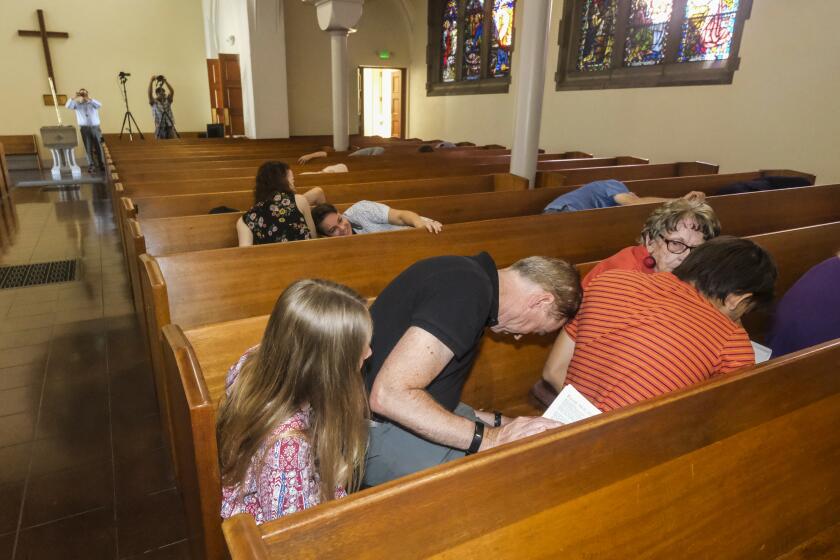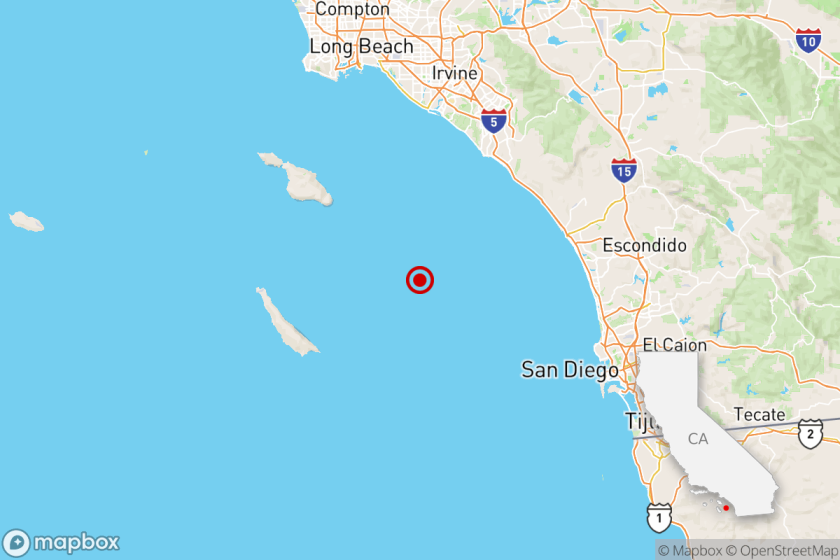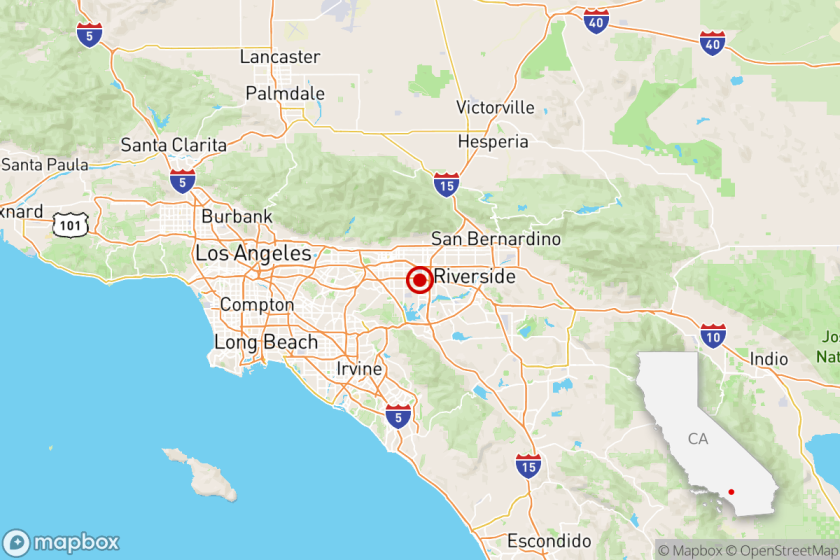Oops! California earthquake early-warning test goes off 7 hours too early for some

Some Californians received a test of the earthquake early-warning system seven hours before the appointed time, jolting them awake at 3:19 a.m. Thursday instead of sounding at the more civilized hour of 10:19.
Groggy recipients reached for their phones as they heard the MyShake app say aloud: “This is a test of the earthquake early warning system. This is only a test.”
The error occurred because the warning was scheduled for 10:19 a.m. UTC — Coordinated Universal Time, also known as Greenwich Mean Time — rather than Pacific Daylight Time.
“Since that morning, that bug has been fixed. And we hope to never again have a test alert at 3 o’clock in the morning,” said Angie Lux, project scientist for earthquake early warning at the Berkeley Seismology Lab. It wasn’t immediately clear if the error was the result of a software glitch or a user input error.
Lux apologized for the errant, early alert.
“Very uncool to get ‘a test of the earthquake warning system’ at 3:19AM. Now my dog thinks I should definitely get up,” @witchy_aunt posted on the social media platform X, formerly known as Twitter.
At the overnight shift at KTVU-TV, the Fox affiliate in Oakland, a number of phones in the newsroom flashed and buzzed with the alert on the predawn shift.
“Looks like someone screwed up,” Andy Clausen, a producer at the station, posted on X.
Churches, temples, mosques and other faith-based institutions could be key in helping communities prepare for natural disasters, Lucy Jones says.
It was unclear how many people received the errant MyShake test warning. The MyShake app has been downloaded more than 1 million times, but it’s not clear how many users are actively running the program.
The scope of the glitch was limited in part because the predawn warning was not issued through the Wireless Emergency Alert system, which is similar to the Amber Alert system and issues warnings via text message; nor through the Android smartphone operating system, which also issues earthquake early warnings.
Another test message went out at the scheduled time of 10:19 a.m.
The test warnings came a day after many in Northern California received an actual alert, including through the Wireless Emergency Alert text message system. A magnitude 4.2 earthquake hit the southwest Sacramento County area, close to Contra Costa, Solano and San Joaquin counties, at 9:29 a.m. Wednesday.
Towns near the epicenter, a rural area in the Sacramento-San Joaquin Rivers Delta, reported only light shaking from the temblor. A number of people across the San Francisco Bay Area and Sacramento region also reported weak shaking.
The initial warning Wednesday from the ShakeAlert system suggested a magnitude 5.7 earthquake had occurred. Scientists are still investigating why the initial estimate was so much larger than the actual magnitude of 4.2.
One possible explanation could be that earthquakes that happen under soft, saturated soils, like those in the delta, shake the ground more than usual, which could be initially interpreted by computer programs as a higher-magnitude earthquake.
Earthquake scientists have noted previously that the early-warning system, when activated, will sometimes issue warnings for quakes that are not felt by the people who receive them.
There have been a number of times recently when the earthquake early-warning system has worked with impressive results. About a year ago, many in the San Francisco Bay Area received several seconds’ warning before they felt shaking from a magnitude 5.1 earthquake that struck under the mountains east of San Jose.
More to Read
Sign up for Essential California
The most important California stories and recommendations in your inbox every morning.
You may occasionally receive promotional content from the Los Angeles Times.












